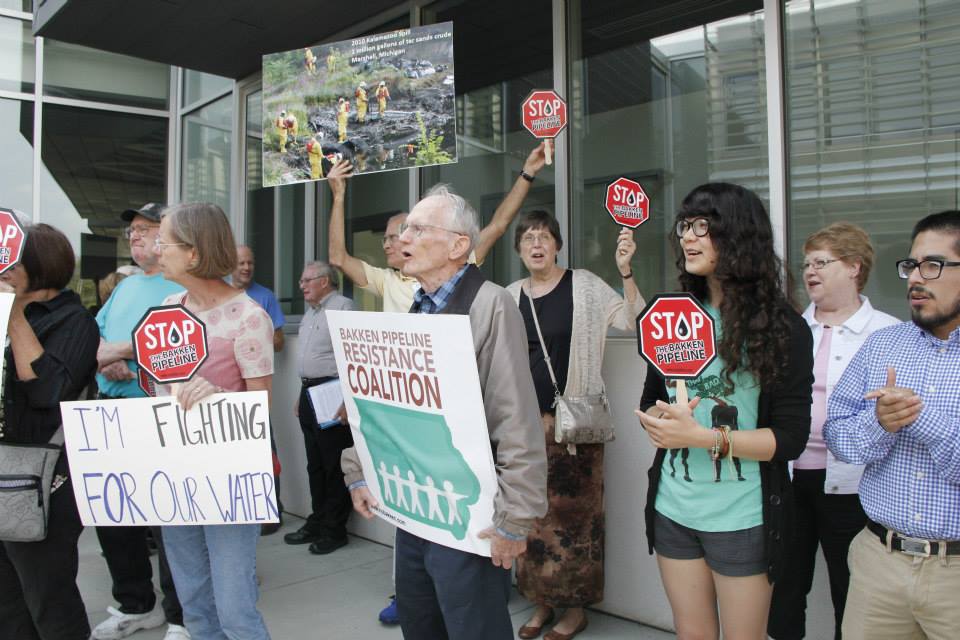This guest blog post was written by Jade Suganuma, a participant in the 2015 Fossil Free Fellowship.
This summer, I was able to work with Iowa Citizens for Community Improvement (Iowa CCI) throughout the summer as a Climate Justice Intern focused on their fight against the proposed Bakken Oil Pipeline.
Arriving at the office every morning, I was always greeted by a plethora of smiling faces, as I struggled to fit my bike through the door. Whether they were laughing at me or sincerely glad I showed up to work that day, I do not know, but it doesn’t matter to me either way, as the organizers at CCI were always quick to brighten my day and share their passion to put people’s issues first and seek justice in our community.
While CCI takes on a wide variety of issues — from racial inequality to economic injustices to water pollution from factory farming (and much more!) — my fellowship revolved around organizing Iowans to fight against a proposed pipeline that would cross through our state, threatening our land and water, and placing many landowners in distressing situations with a threat of eminent domain looming over their way of life. I was able to engage in lots of local organizing by helping to organize events and actions and encourage landowners to write letters to the editor expressing their concerns and getting the issue out to the public. I was also able to help organize groups of CCI members across the state to go out petitioning and get objections to the pipeline signed and turned in to the Iowa Utilities Board. It was great to see how fast the movement grew in just a few weeks.
The most rewarding part for me was taking the issue beyond the level of landowners being threatened and individuals concerned about their own health and safety. By initiating talk of a climate justice movement in Iowa, I was able to help CCI begin to create a new narrative from which they plan to view environmental issues and work toward a just transition. After many meetings, conference calls, and public discussions, talk of a localized energy system that works for everyone in the state was initiated. My goal was to help CCI members, organizers, and Iowa communities alike to realize the role that a proposed oil pipeline plays in this vision of climate justice. It was no longer just a local issue gaining too much media hype and only affecting those who own land in the pipeline’s path. Such infrastructure retracts from investments in local communities and only benefits corporate power which contributes to a very extractive economy. The pipeline fight can be traced back to systemic issues that affect different groups of people at different levels.
It was truly enlightening to see my fellow community members come to terms with this climate justice vision, as we recognized the issue as a part of a very large scale issue. This was first evident in a small public discussion we held at a coffee shop where I was able to help outline what climate justice means. We discussed not only why the pipeline would be detrimental to our energy system and to our communities, but what a community-centered energy system would look like. Moving forward, we even began discussion on the Clean Power Plan and how it can be designed to include these local energy sources and be to the benefit of every person, instead of creating profits for large energy companies while minority communities are forced to shoulder the costs of renewable energy infrastructure.
While I am sad that I will not be around to witness the final outcome of the pipeline’s proposal, I am beyond grateful to 350.org’s Fossil Free Fellowship program and Iowa CCI for the opportunity to contribute even a small amount of effort to making my community’s climate justice vision a reality.
